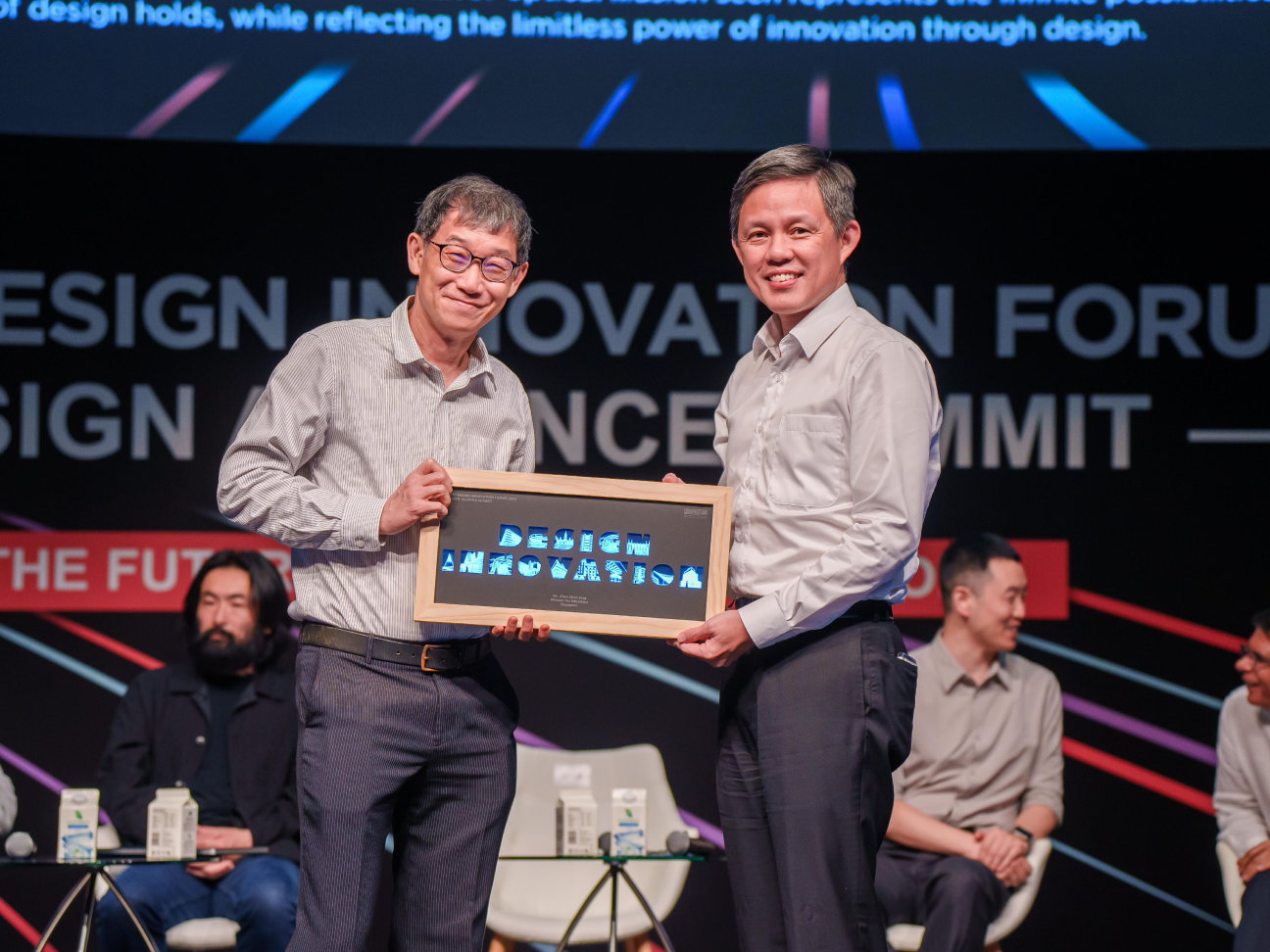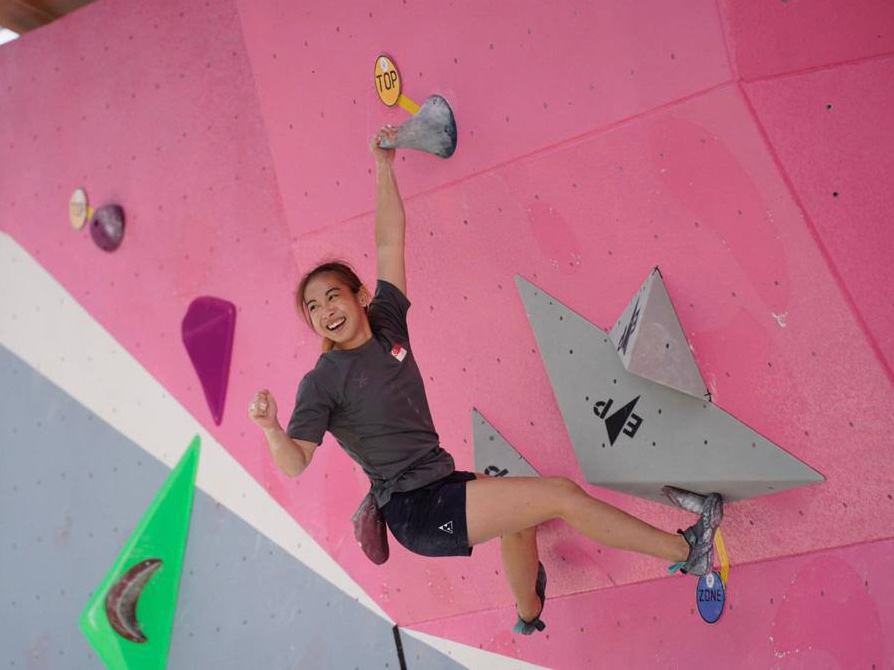Events
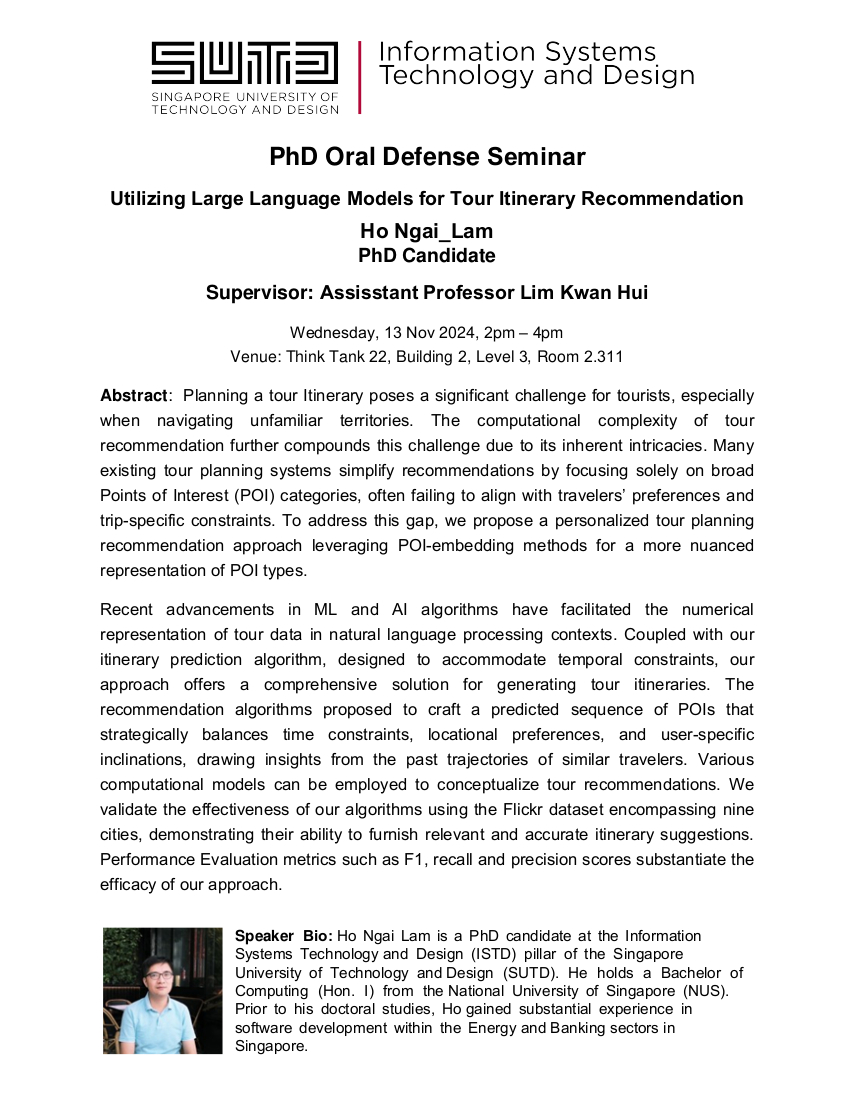
ISTD PhD Oral Defense Seminar by Ho Ngai Lam – Utilizing Large Language Models for Tour Itinerary Recommendation
Planning a tour Itinerary poses a significant challenge for tourists, especially when navigating unfamiliar territories. […]

Immanuel M. Bomze (University of Vienna) – Need to relax – but perhaps later? Reflections on modeling sparsity and mixed-binary nonconvex optimization problems
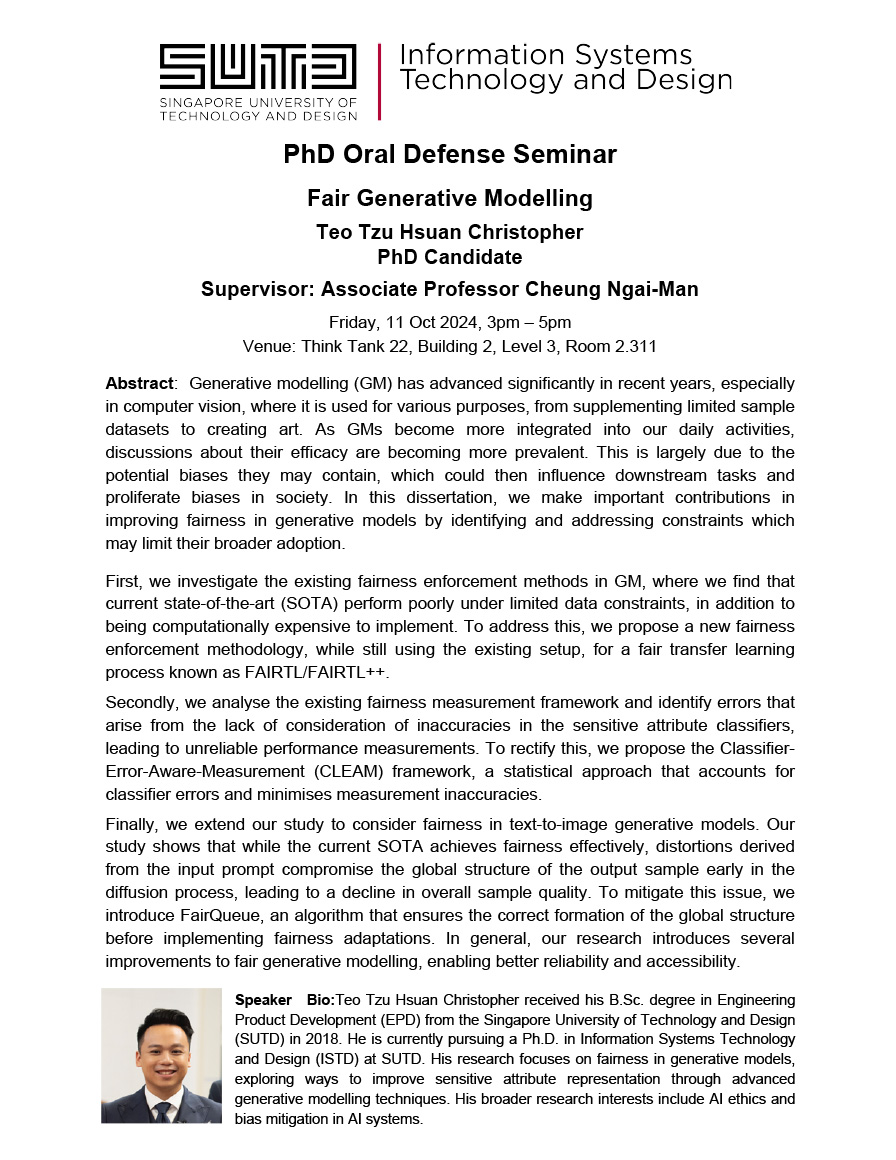
ISTD PhD Oral Defense Seminar by Teo Tzu Hsuan Christopher – Fair Generative Modelling
Generative modelling (GM) has advanced significantly in recent years, especially in computer vision, where it is used for various purposes, from supplementing limited sample datasets to creating art. As GMs become more integrated into our daily activities, discussions about their efficacy are becoming more prevalent. This is largely due to the potential biases they may contain, which could then influence downstream tasks and proliferate biases in society. In this dissertation, we make important contributions in improving fairness in generative models by identifying and addressing constraints which may limit their broader adoption. […]

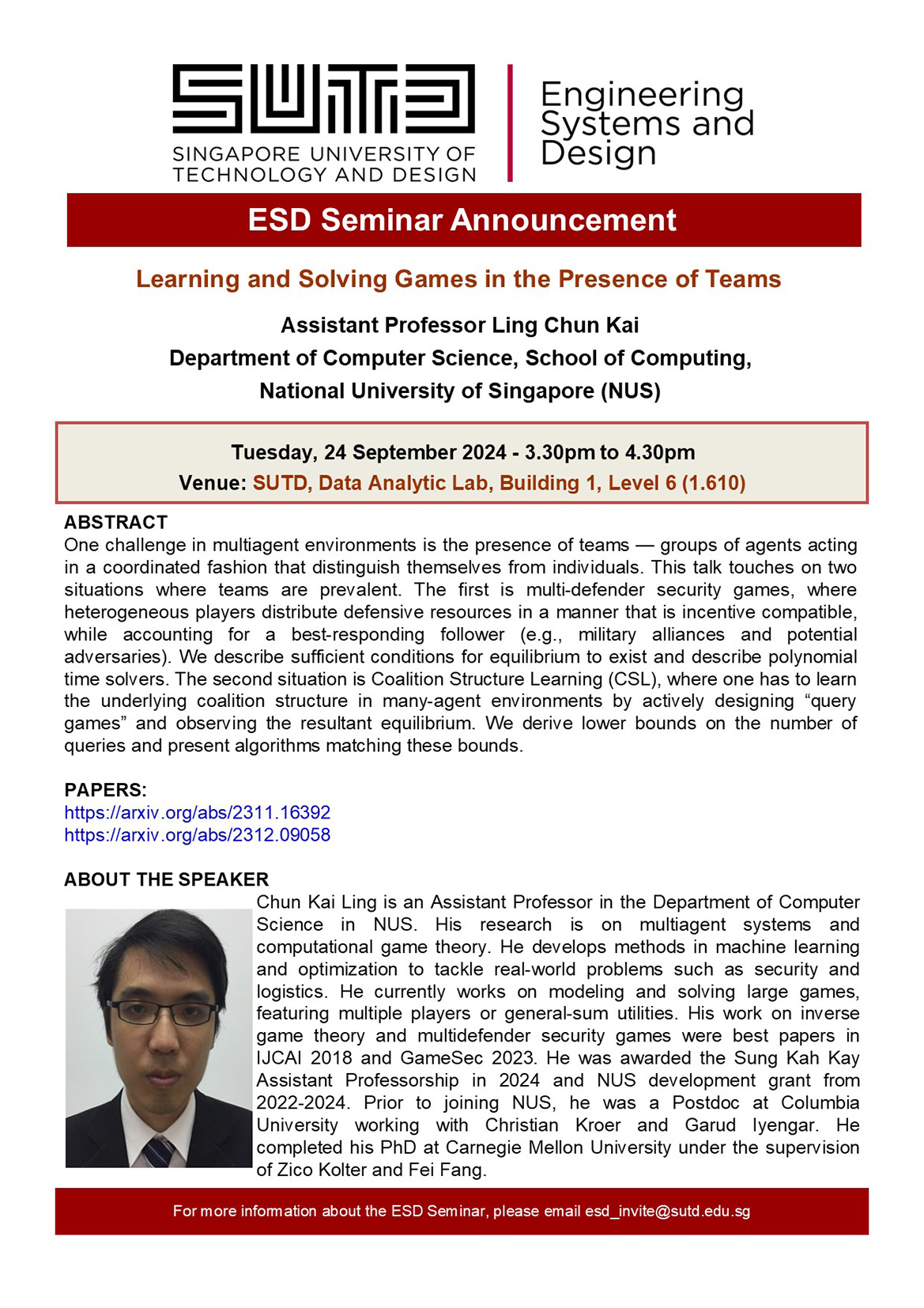
Ling Chun Kai (National University of Singapore) – Learning and Solving Games in the Presence of Teams

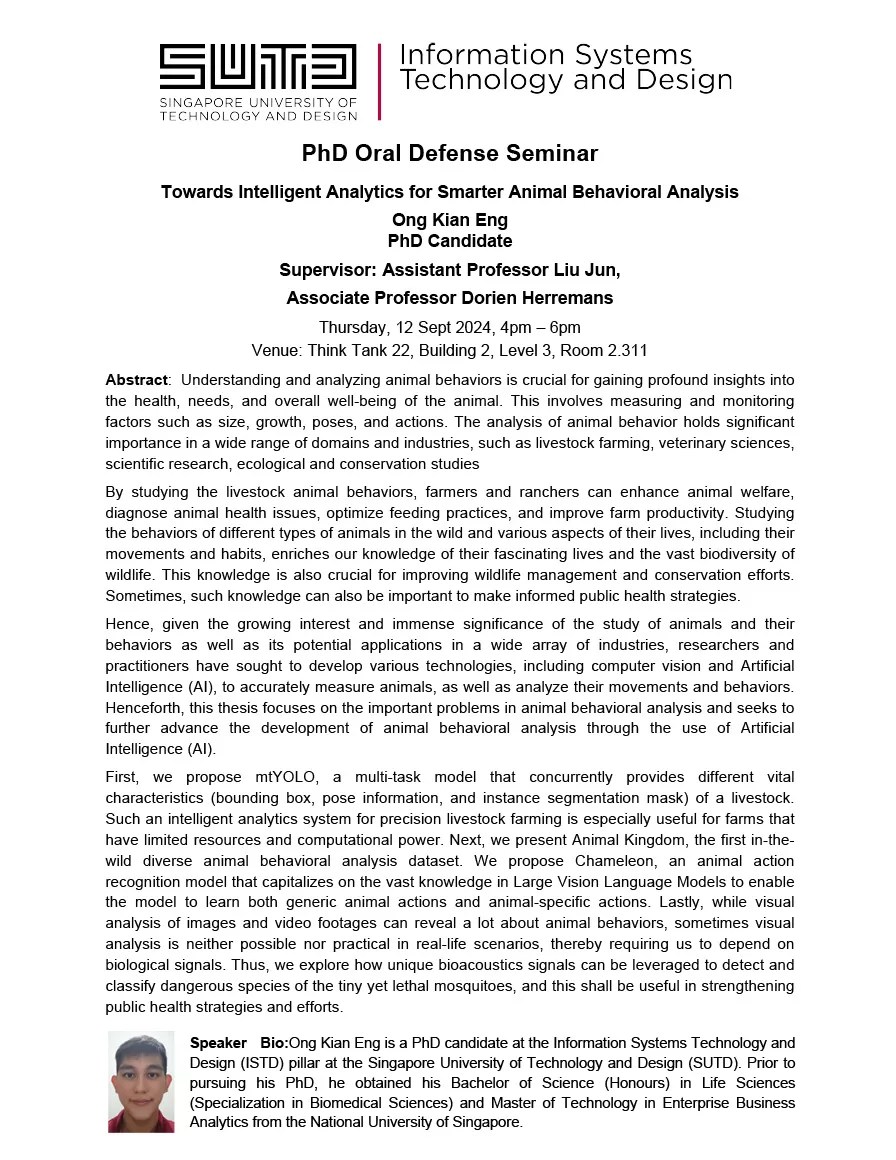
ISTD PhD Oral Defense Seminar by Ong Kian Eng – Towards Intelligent Analytics for Smarter Animal Behavioral Analysis
Understanding and analyzing animal behaviors is crucial for gaining profound insights into the health, needs, and overall well-being of the animal. This involves measuring and monitoring factors such as size, growth, poses, and actions. The analysis of animal behavior holds significant importance in a wide range of domains and industries, such as livestock farming, veterinary sciences, scientific research, ecological and conservation studies. […]

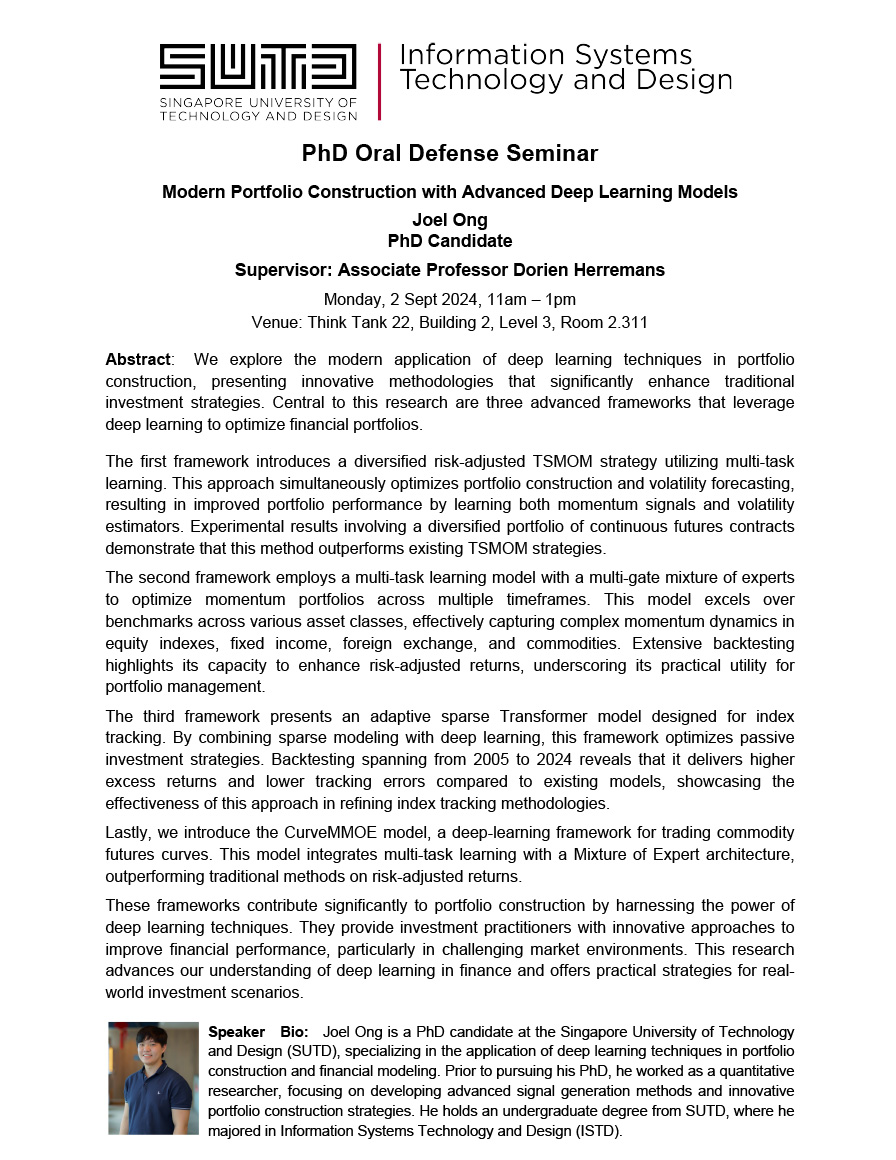
ISTD PhD Oral Defense Seminar by Joel Ong – Modern Portfolio Construction with Advanced Deep Learning Models
We explore the modern application of deep learning techniques in portfolio construction, presenting innovative methodologies that significantly enhance traditional investment strategies. Central to this research are three advanced frameworks that leverage deep learning to optimize financial portfolios. […]

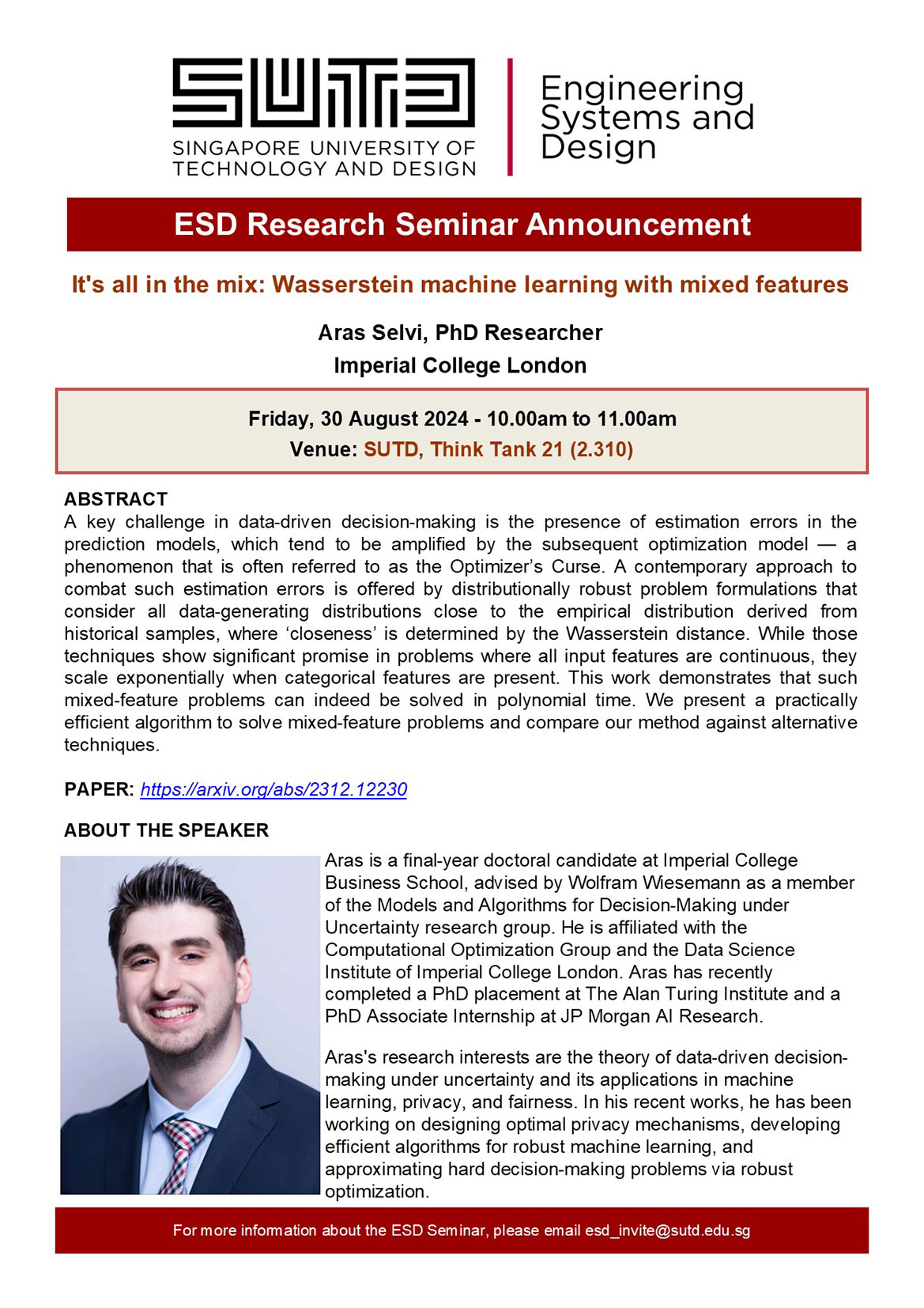
It's all in the mix: Wasserstein machine learning with mixed features
It’s all in the mix: Wasserstein machine learning with mixed features

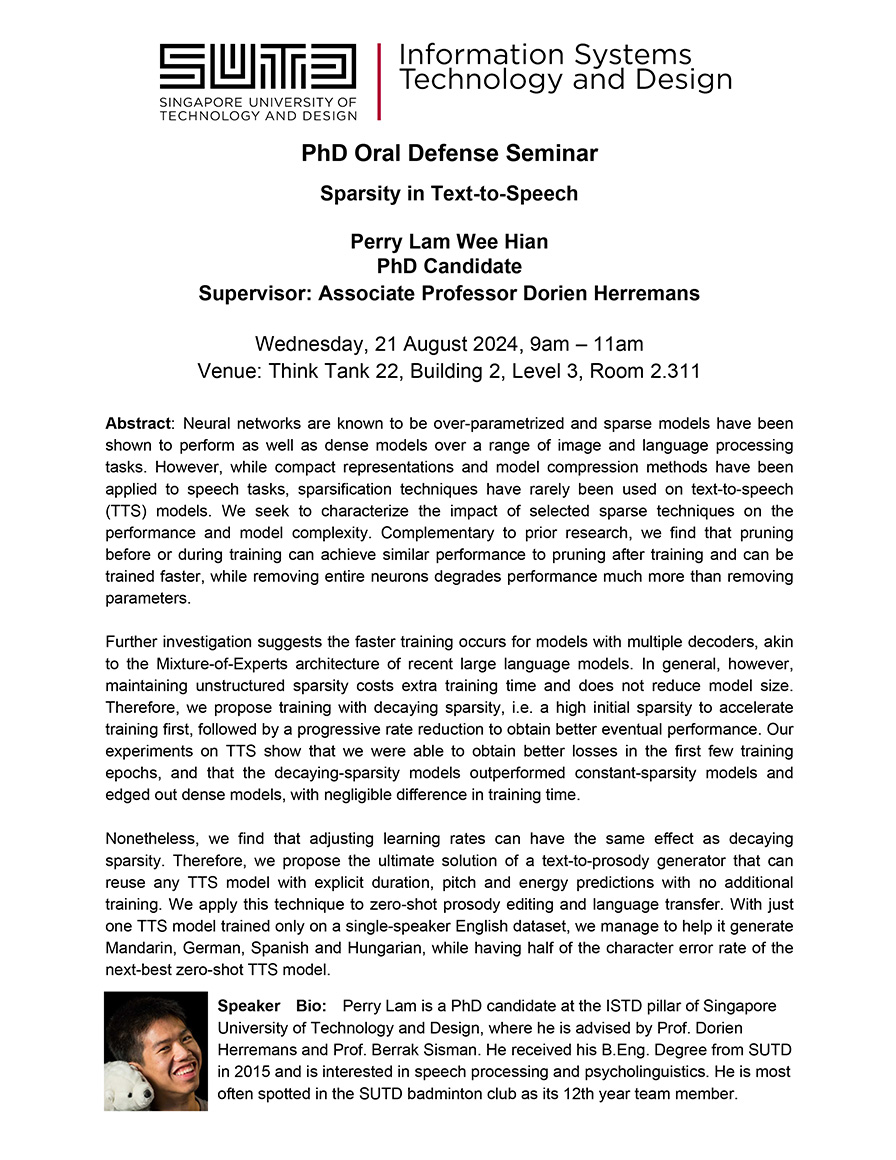
ISTD PhD Oral Defense Seminar presented by Perry Lam – Sparsity in Text-to-Speech
Neural networks are known to be over-parametrized and sparse models have been shown to perform as well as dense models over a range of image and language processing tasks. However, while compact representations and model compression methods have been applied to speech tasks, sparsification techniques have rarely been used on text-to-speech (TTS) models. We seek to characterize the impact of selected sparse techniques on the performance and model complexity. […]

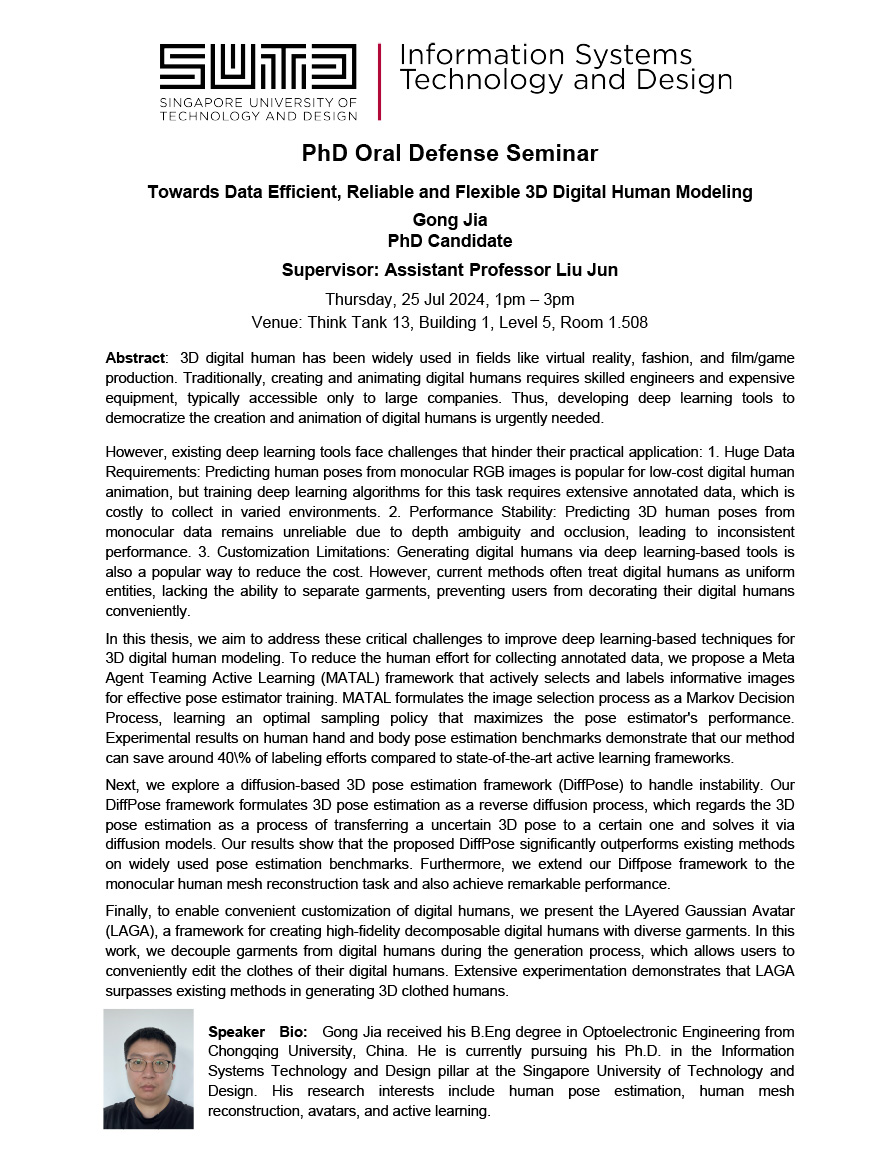
ISTD PhD Oral Defense presented by Gong Jia – Towards Data Efficient, Reliable and Flexible 3D Digital Human Modeling
3D digital human has been widely used in fields like virtual reality, fashion, and film/game production. Traditionally, creating and animating digital humans requires skilled engineers and expensive equipment, typically accessible only to large companies. Thus, developing deep learning tools to democratize the creation and animation of digital humans is urgently needed. […]

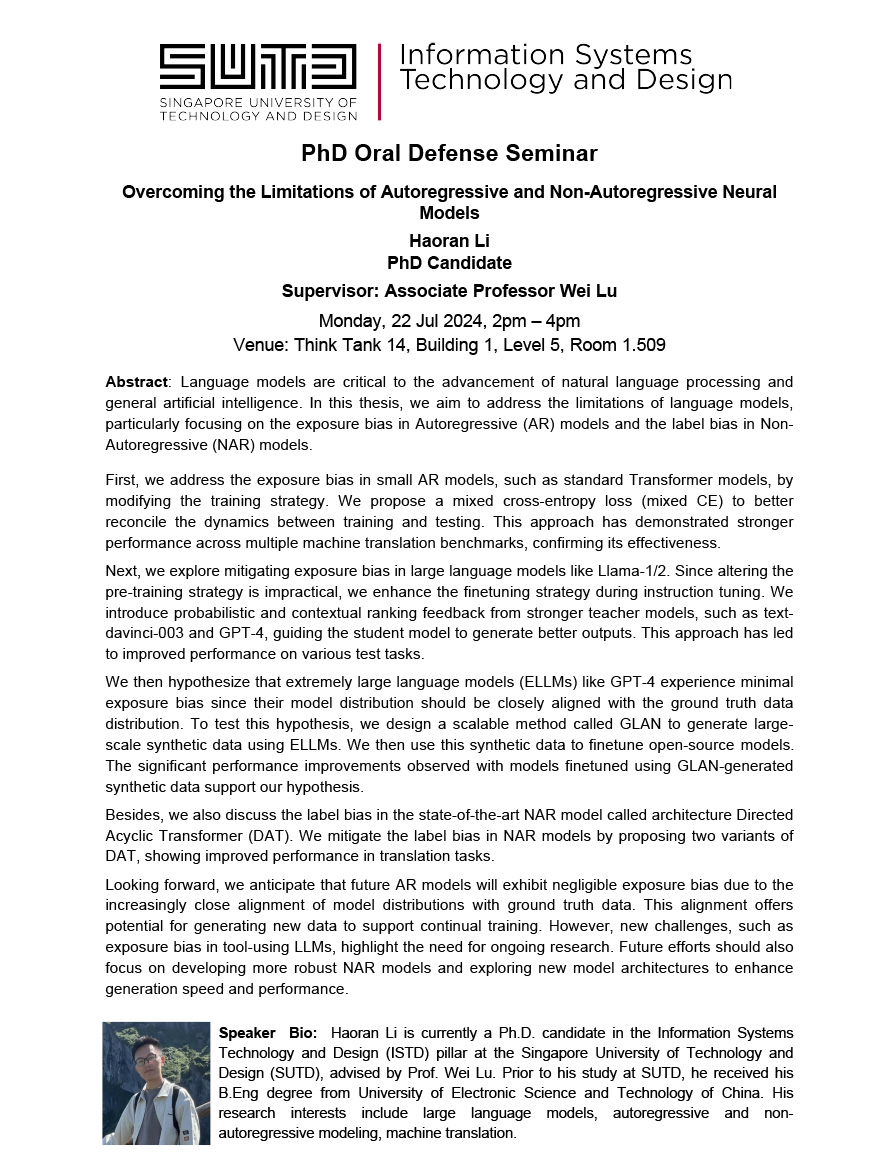
ISTD PhD Oral Defense presented by Haoran Li – Overcoming the Limitations of Autoregressive and Non-Autoregressive Neural Models
Language models are critical to the advancement of natural language processing and general artificial intelligence. In this thesis, we aim to address the limitations of language models, particularly focusing on the exposure bias in Autoregressive (AR) models and the label bias in Non-Autoregressive (NAR) models. […]




